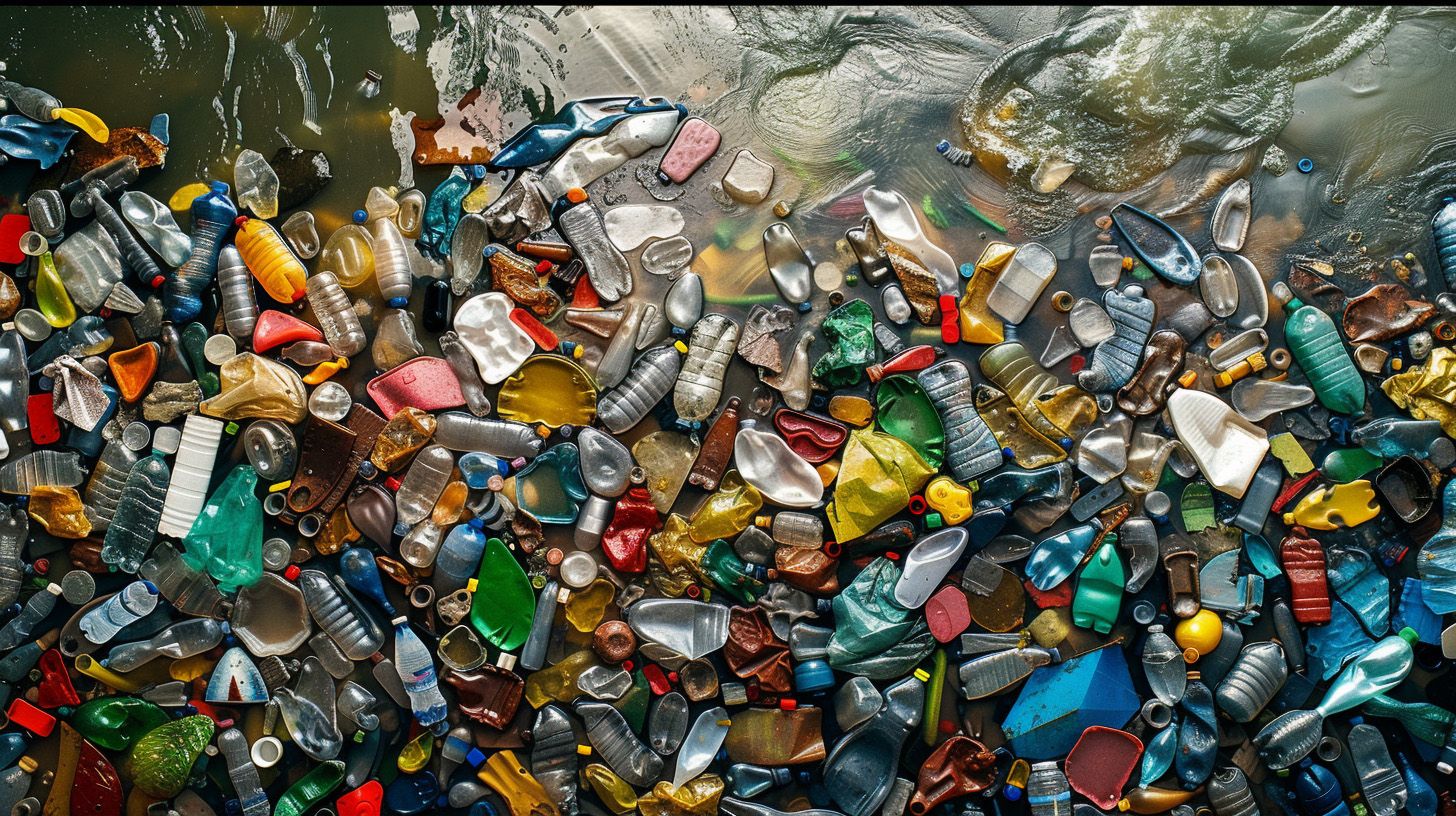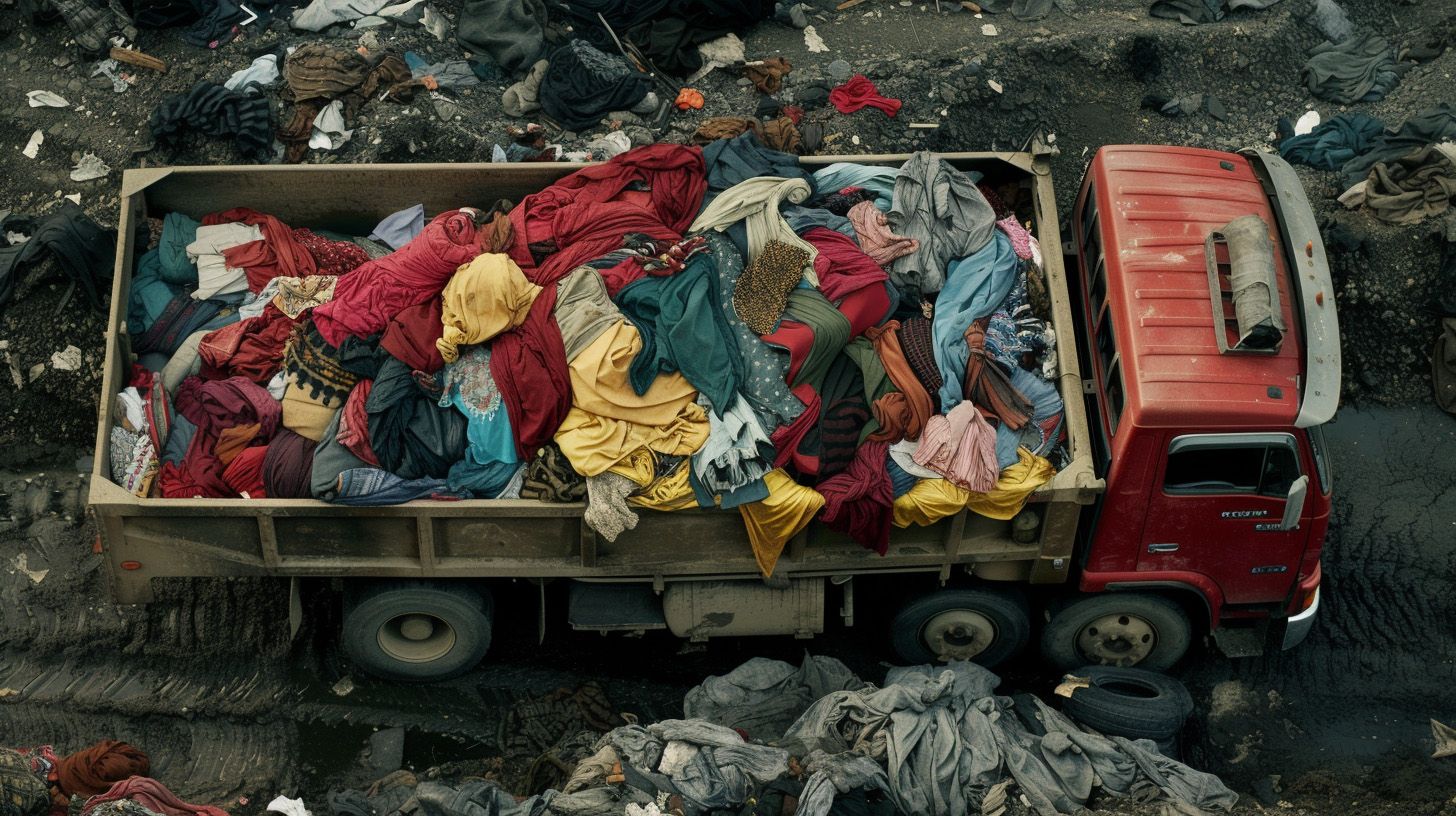The Rise of the Eco-Conscious Consumer


According to a report released by the world bank, global waste production will exceed 3.4 billion metric tonnes over the next 30 years, if it keeps rising at the current rate. Here’s some context - in 2016, the number was 2.01 billion tonnes - and we know how much of a scary proposition that is already in terms of the health of our oceans and soil ecosystems. A huge chunk of this waste is plastic and electronics, which represent a pervasive and pernicious environmental hazard.
We produce about 300 million tonnes of plastic waste annually - get this - that’s just about the weight of the entire human population on earth! On top of this, we also produce a whole lot of e-waste, thanks to the meteoric rise in the popularity and penetration of smartphones and other electronic devices. It is estimated that a staggering 53.6 million tonnes of electronic waste was generated globally in just the year 2019! This is problematic on a number of levels - firstly, there’s the haemorrhagic loss of extremely rare minerals which is unimaginably costly. Secondly, e-waste poses a massive risk to the health of both human beings and the ecosystem at large.

Food waste is another egregious vice of ours - we throw away close to a third of all the food produced in the world for human consumption - that’s about 1.3 billion tonnes every year! This means that a whole lot of humanity is still starving and as if that weren’t bad enough, there’s all the unnecessary emissions and wasted resources that go into producing this food.
The idea here is not to bum you out. This is not about scaremongering. All this is intended to paint a picture - a picture of some of the really unpleasant side effects of the way we’ve structured our global civilisation in our post-industrial era.
As a collective unit, we have a number of big challenges that we need to contend with, moving forward - the biggest of which are not even environmental - we still haven’t solved the problems of poverty and avoidable disease. Solving these challenges is crucial and that sadly implies that our ecological woes will only compound unless we take drastic action. Soil health is depleting at an alarming rate - The Food and Agriculture Organisation (FAO) estimates that over a third of the earth’s soils are already degraded and this number could reach a terrifying 90% by the year 2050. Soil health is a keystone metric that acts as a reliable barometer of our environmental situation. Desertification threatens the very fabric of our societies - seeing as it seriously threatens biodiversity, ecosystem health and food security.
The global population is growing at an unprecedented rate and hundreds of millions of people are moving into urban areas. This mass urbanisation comes with the inevitable caveat of waste production, habitat destruction and pollution. Unsustainability is a central theme in all these issues - what does that mean? It simply means that if we carry on like this, we won’t be able to sustain ourselves for much longer.
This is not to point fingers at anyone or to entirely denigrate the modern post-industrial world. After all, we enjoy such sweeping protection from the harsh demands of existence as arguably no other prior generation has. This is no small part due to the dramatic increase in living standards brought about by industry, mass production and information technology. To entirely dismiss the modern world and all that it has enabled would be infantile - for millennia, most of humanity spent nearly all their lives just trying to survive hunger, poverty, scarcity and the relentless harshness and unpredictability of the natural world.
It is easy to forget that the environment that we are trying so feverishly to preserve today was our biggest adversary throughout most of our history - mankind, for the most part, was at the mercy of nature’s capriciousness, utterly helpless against the whimsical vagaries of the natural world. So, the idea here is not to dismiss the way we’ve organised ourselves in modern times - that would be tantamount to throwing the baby out with the bathwater.

It’s not collective malice or ill-will that are responsible for these titanic environmental challenges we find ourselves facing. It’s simply that most of the growth and development of the last couple of centuries has been haphazard, disjointed, disconnected and disorganised - and fair enough right? It’s not like we had the luxury of sitting down as a global collective and planning out how we should structure the future of our world. We are forced, as humans, to contend with the fact that we are incredibly limited by what we know - what we don’t know, we don’t know. We pulled in various directions trying to solve the immediate challenges that confronted us in the best way we knew how. That’s brought us this far - and that’s no mean feat. The world around is nothing short of a miracle in terms of how connected, robust and efficient it is. However, that’s also why we are now facing these monumental challenges that are forcing us to try and come up with planet-wide solutions.
Now, we have come to a place where expediency can no longer serve us. We are facing threats that are so overarching in their scope that we need to think more long-term. That’s where sustainability comes in - we have an opportunity now to rethink and reimagine the structures that we have created. Redesign them in ways that balance our immediate needs with more long-term concerns about our collective health. These threats are not going to be wished away. We need to act decisively and we might not have the luxury of time.
None of this is new - we have understood for a good while now that urgent action is needed to remedy the unsustainability of our ways. The good news is that the message seems to have sunk into our collective minds and conscience.
Global Push Towards Sustainability
Even as far back as the 1980s, there was a concerted effort starting to be made by the governments and regulatory bodies of the world to try and combat the danger of ecological collapse. The wealthier nations of the world spearheaded various movements aimed at trying to curtail unsustainable practices.
Gatherings like the 1992 Earth Summit in Rio became a regular feature in the global calendar, resulting in various crucial agreements being signed on issues pertaining to environmental sustainability. Cut to 2015, and we had pretty much the entire international polity coming together to sign the Paris agreement, setting itself highly ambitious targets directed at stalling global warming. A significant amount of legislative effort was starting to be made by governments worldwide, especially in the developed world, aimed against ecological degradation.
There’s also been an increased pressure on businesses and consumers to try and do their part. Today, this has reached a point where corporate entities are under immense pressure to make sure they meet the ethical and environmental demands set by governments and an increasingly conscious and well-informed populace. Companies are having to rethink their strategies and embrace greener practices at every step of the production process.
Governments have been employing a wide range of incentives - of both the carrot and the stick varieties - to try and push corporations towards more healthy and sustainable business practices. These incentives have ranged from financial benefits and waivers for embracing greener ways all the way to stringent punitive regulations that severely punish ecological neglect.
Recently, these efforts have reached fever pitch. The European Union introduced the Green Deal as part of an ambitious effort to make Europe 100% carbon neutral over the next 3 decades. The plan is to reduce net greenhouse gas emissions by more than half by the year 2030 (relative to 1990 levels). The green deal is touted as being comprehensive, covering a wide range of policy areas including agriculture, industry, urban development, clean energy, pollution control and waste management. The circular economy action plan, a key component within the framework, is directed at incentivising companies to adopt more farsighted and sustainable business practices. It focuses on using resources more efficiently and reducing waste generation - i.e doing more with less.
Many countries around the world have instituted strict restrictions and sometimes, even outright bans on single-use plastics. For example, Canada’s blanket ban on all single use plastics came into effect in 2022, as part of an effort towards zero plastic waste by 2030. There has also been a trend of countries legislating towards ambitious and urgent net-zero-emissions targets - for instance, the United Kingdom famously became the first major economy to pass legislation aimed at reaching net-zero by the year 2050. The United States recently passed the Inflation Reduction Act (2022) which has brought into effect a whole range of measures aimed at promoting green energy - including tax breaks for businesses and individuals investing large sums of money into renewable energy.
This trend has meant that there has been a lot of work done on creating strategies and policies to decarbonise various sectors of the economy by creating a regulatory environment that promotes sustainability and punishes short-term, self-interest.
If you believe in sustainability, you’ve got to build it into enough of your product portfolio that it shows up and resonates with consumers.
- Steve Noble, Senior Partner, Mckinsey and Company
The Rise Of The Conscientious Consumer
Today we are seeing the dramatic rise of a new kind of consumer - to be fair, this is a trend that has been underway for quite some time now. Today’s consumer is super clued into the massive environmental issues that threaten us and understands that the responsibility for these issues goes all the way down to individual choices.
This flies in the face of a more reductionist and old-school understanding of consumer behaviour where the consumer is seen as an entity driven purely by myopic self-interest. Maybe access to information is responsible for this shift. Maybe it’s an indication of just how much these environmental challenges are weighing on our collective conscience.
Whatever be the case, the verdict’s out and it’s pretty clear - today’s consumer is conscience driven and they are backing it up with their spending decisions. For many years now, companies have often complained about poor consumer demand for environmentally sustainable alternatives being the reason why they find it difficult to keep up with their ESG (Environmental, Social and Corporate Governance) initiatives. Here’s the thing - they’re not wrong - We’ve had many incidents of companies launching new products with robust ESG claims that fell terribly short when it came to sales. But equally, we’ve known for a while now that there’s massive interest in sustainable products and goods among today’s consumers - In a 2020 survey conducted by Mckinsey, 60% of respondents said they’d be happy to fork out more for products with sustainable packaging. A more recent study conducted by NielsenIQ reported that a whopping 78% of US consumers consider a sustainable lifestyle as something they find very important.
So, which one is it? Apparently, when it comes to spending decisions, it’s the latter - and now, there’s good data to back that up.
Nielsen and Mckinsey conducted a rigorous study on the subject of consumer spending decisions in the CPG (consumer packaged goods) segment and their findings are nothing short of astounding. The study intended to reconcile or at least make sense of this apparent contradiction between consumers’ stated preferences and their buying decisions. Are consumers actually making good on their claims when they stand in supermarket aisles and decide what to buy? Or are their real-life decisions diverging from their claims?

NielsenIQ and Mckinsey undertook a vast and rigorous study to try and answer these questions conclusively.
So, how did they do this?
Instead of tracking people’s sentiments, they decided to focus exclusively on their actual spending habits - tracking dollars instead of claims. And long story short, they found that at least for CPG companies, there is a fact-based case to be made for bringing more sustainability and social responsibility oriented products into the market - it turns out that this would not just be the morally right thing to do but would also represent a profitable business decision.
They found that products making ESG-related claims, on average, grew cumulatively by 28 percent over the last 5 years, against 20 percent for products that didn’t - a substantial 8% difference.
Companies are waking up to this new brand of consumer. A report published by the Economic Intelligence Unit (commissioned by the World Wildlife Fund) in 2021 showed that online searches for sustainable products had risen by over 70% since 2016! That’s a staggering figure and it speaks unequivocally for the emergence of the conscientious consumer. Globally, there has never been more public concern over ecological sustainability - the coronavirus pandemic only bolstered this increasing public awareness and concern. Since 2016, close to 160 million people have signed online petitions in support of various ecological causes.
Cristianne Close, the Global Markets Practice Leader, WWF International describes this trend succinctly “Brands that deliver on pursuit of purpose that drive a culture of sustainable innovation are the front runners in consumers’ eyes - and they are watching
This trend isn’t just restricted to the developed world - this trend of increased ecological awareness as evidenced by the rise in online searches is extending to developing countries as well - Indonesia has seen a 24% increase while Ecuador has seen a scarcely believable increase of 120%. According to the living planet report, 96% of those surveyed in Brazil reported seeing nature loss as a grave problem that needs immediate attention.
Brands that deliver on pursuit of purpose that drive a culture of sustainable innovation are the front runners in consumers’ eyes - and they are watching
- Cristianne Close, the Global Markets Practice Leader, WWF
Over the same time frame, public concern for nature globally has risen by 16% and has continued growing during the pandemic. Since 2016, over 159 million people have signed online petitions in support of nature, with protests growing in strength and frequency. A remarkable 96% of survey respondents in Brazil see nature loss as a serious problem. These are not isolated figures by any stretch.
Here are a few more numbers that highlight just how much of a global trend this is - China isn’t a country that readily springs to mind for most of us when we think of an eco-conscious populace - but here goes - a recent Nielsen report indicated that over 40% of Chinese respondents claim that they want the products they buy to be eco-friendly. Similarly, a study conducted on the fashion industry came out with some pretty telling numbers - 66% of respondents said they considered sustainability when making purchases and this number shot up to an overwhelming 75% among millennials.
The market for sustainably manufactured goods seems to be on the rise worldwide - in Britain alone, the total market cap of ethically manufactured goods has soared by 400% in the last 20 years! In India, sales of organic products have risen by a ridiculous 13% in just the last five years!
Today’s consumers want to use their purchasing power to favour companies that take ecological sustainability seriously. And this shift in consumer preferences is putting massive pressure on businesses to clean up their act, as it were. Covid-19 only seems to have accelerated this trend. The gravity of our ecological situation was very effectively drilled home by the scenes that we witnessed during the pandemic.
Businesses today are under immense pressure to deliver on the sustainability front - There seems to be a consensus among the general public that businesses should lead the charge when it comes to driving sustainable practices and social change. In a recent survey conducted on fashion industry executives, over 50% claimed that increased pressure from the side of the consumer is driving their companies’ move towards more sustainable practices. Several of these companies have committed to more ethical sourcing of raw materials. This trend is also evident in a number of other industries such as food, cosmetics, pharmaceuticals and information technology.
The Economics of Sustainability
Businesses are much like living organisms - they seek to stay alive, grow and thrive. For businesses to take steps in any given direction, there needs to be a strong economic incentive to do so.
This is where things get really interesting - as things stand, businesses are not only under tremendous social pressure to embrace sustainability but there also seems to be a massive economic incentive to go the green way.
The World Economic Forum estimates that green business practices will generate over $10 Trillion in revenue and could generate over 395 million new jobs worldwide in just the next decade or so!
In the same analysis, the World Economic Forum tried to estimate the total dollar value of nature to the global economy and came up with a number that’s frankly staggering - $44 Trillion! That’s more than half of the world’s total GDP!
Here’s the kicker - businesses around the world are onto this trend and they’re doing everything they can to not leave this enormous opportunity on the table - In the year 2022, the global green technology and sustainability market was worth $12.62 billion; By the year 2030, it is slated to reach $81.22 billion - that’s a Compound Annual Growth Rate (CAGR) of 26.2% over the next few years!
The idea we’re trying to get across here is that this trend is not to be understood in sanctimonious terms of businesses being forced to be “good” - there are serious economic incentives in place today that are hard for businesses to ignore. It is simply in their own self-interest to embrace nature protection and sustainable business practices.
This is a massively positive development - this means that businesses will inevitably start to play an increasingly hands-on role in our collective efforts to reverse nature loss and ecological degradation. Because, If there’s one thing businesses can be reliably counted on to do, it is to maximise their profits and act in their own best interests.
In their Future of Business and Nature Report WEF offers detailed action plans for businesses to tap into this $10.1 Trillion opportunity - this report is centred around pro-nature steps that businesses can take that have the triple benefit of more jobs and huge profits on top of furthering our collective sustainability goals.

This report is based on hard data gathered from across the world and what they’ve found is that across sectors and countries, business outcomes improve when nature-positive outcomes improve - In a farming operation in Indonesia, IoT sensors and satellite imagery was used to increase yields by a massive 60%. China’s Suzhou Industrial Park has undertaken green development plans which have, in part, resulted in a 260-fold increase in GDP. Similarly, a project aimed at restoring critical mangroves in coastal Vietnam saw native coastal communities more than double their income over a short period of time.
We can address the looming biodiversity crisis and reset the economy in a way that creates and protects millions of jobs; Public calls are getting louder for businesses and the government to do better. We can protect our food supplies, make better use of our infrastructure and tap into new energy sources by transitioning to nature-positive solutions.
- Akanksha Khatri, Head of the Nature Action Agenda
he report is built on real world examples where business outcomes have been improved by nature-positive outcomes. Smart farming utilising sensors and satellite imagery in Indonesia improved crop yields on average by 60%. Suzhou Industrial Park’s green development in China has seen its GDP increase 260-fold partially through green development. In Viet Nam, people living in coastal communities saw their incomes more than double following the restoration of critical mangroves.
The report lists some key sectors and areas of the economy to be targeted in this action plan including fishing, agriculture and food processing, retail, infrastructure and waste management. We’ll see more about this in the ensuing section.
The Role of IoT In The Green Shift
The IoT Sector is playing a pivotal role in this green shift - battery-powered sensors are making way for self-powered, batteryless sensors powered by energy harvesting technology. The role of IoT in this global move towards nature-positive business is hard to overstate. There are two aspects at play here - firstly, there is the shift within the IoT industry towards environmental sustainability, as evidenced by a transition away from batteries and other ecologically dubious practices.
The other big role that IoT technology is playing is that of a catalyst- a driver of change in other sectors. IoT networks facilitate large scale information exchange that is proving to be crucial in stepping away from ecologically questionable business practices, towards more efficient, holistic and sustainable ways of doing business.
For instance, the WEF report lists large scale farms as a huge area of opportunity from a green-business perspective - thanks to IoT technology being deployed around the world in smart-farms, we are now witnessing the meteoric rise of precision agriculture. It is estimated that precision agriculture will generate over 4.3 million jobs and nearly $200 Billion in revenue by the year 2030. Connected technologies enable a more efficient and granular approach to growing food which translates into better yields, lower overheads and optimal resource utilisation.
Similarly, IoT technology is being deployed in the retail sector, to great effect. Every second, a truckful’s worth of textiles is dumped into landfills. An egregious $500 billion is lost every year due to discarded clothing. Today, IoT technologies are being used to track articles of clothing throughout their journeys across the globe, ensuring that they end up in recycling centres. This is another use-case of IoT technology that directly impacts the environment. It is estimated that harnessing the power of IoT and using more renewable inputs towards recycling clothes could add up to over $130 billion in savings while preventing over 148 million tonnes of textile waste.

Sensors are also reshaping the way we approach infrastructure. About 40% of the world’s GDP is accounted for by the artificial environments that we construct - i.e infrastructure. Retrofitting buildings with batteryless sensor based IoT-systems could supercharge efficiency and account for about $825 billion in savings by 2030. Smart buildings also come with a host of other benefits such as reduced disaster risk and lower energy costs. The market for smart buildings, according to some bullish estimates, could well grow 12% a year reaching $15 billion by the year 2030.
Smart sensors are also going to be playing an increasingly prominent role in waste management, soil management, water management and mining, to name a few. Some of these sectors are goldmines waiting to be tapped into - for example, the waste management industry is said to have $305 billion in untapped revenue. With the right investments being made in the right places (i.e South Asia, East Asia and Sub-Saharan Africa), there is no telling how far this industry could go.
These are just a few examples that serve to highlight the general idea we’re getting at. This trend of IoT-enabled sustainability is a feature across many other sectors such as energy, mining, automobiles, healthcare etc.
Looking Ahead
We are facing some dire challenges no doubt but there are definitely reasons to be optimistic. The trends on display in the world right now are definitely something to cheer about. Technological innovations like batteryless IoT are changing the nature of the playing field. Now, it’s just a matter of more concerted effort on our part, collectively, to reverse the damage brought about by our own short sightedness.
As we move deeper into the 21st century, it is imperative that we maintain collective awareness of the global threats we’re up against. If anything, the statistics listed in this post show that people caring about something and standing up to be heard does make a difference. The power we have as consumers is tremendous. An incredible proportion of us are educated about these issues and have enough disposable wealth to truly make a difference on a global scale.
When enough of us start pulling in the same direction, it is inevitable that we’ll start to see a shift towards a more healthy and happy planet. Let’s make it happen!












